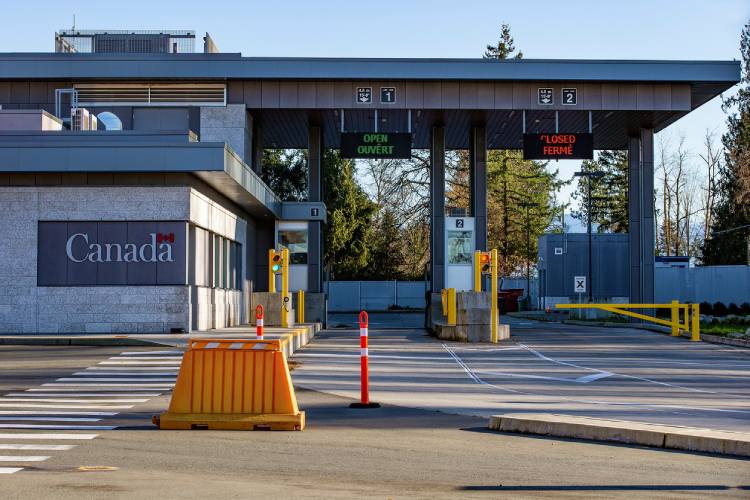Traveling to Canada with a history of DUI, DWI, or similar driving-related convictions can present significant challenges due to strict inadmissibility rules. Whether you’ve faced charges for impaired driving, DUI (Driving Under the Influence), DUAI (Driving Under the Influence of Alcohol), DWAI (Driving While Ability Impaired), DWI (Driving While Intoxicated), OVI (Operating a Vehicle under the Influence), OWI (Operating While Intoxicated), or reckless driving, understanding the potential barriers and the pathways to enter Canada legally is crucial.
This blog reviews how past convictions may affect your ability to cross Canadian borders. It outlines the concept of inadmissibility due to criminal convictions, the critical timelines that impact your eligibility for entry, and the steps you can take toward deemed rehabilitation or formal rehabilitation procedures. Whether you are a first-time traveler to Canada or have faced entry issues, this article aims to equip you with the knowledge and tools to assess your situation, prepare the necessary documentation, and confidently navigate the Canadian entry process.
The Post-Sentence Waiting Period and Your Eligibility
For individuals with a single offense, rehabilitation might be possible if more than ten years have passed since fulfilling your sentence. A more formal rehabilitation process may be necessary for those with multiple offenses or offenses committed after December 18, 2018. Understanding these timelines is crucial for planning your travel to Canada.
Overview of Deemed Rehabilitation
Deemed rehabilitation is a status that may allow individuals with past criminal convictions to enter Canada. It is evaluated based on several factors: the nature and severity of the offense, the number of crimes committed, and how similar offenses are treated under Canadian law. This status can be particularly relevant for travelers looking to visit Canada but who have prior convictions.
Determining Your Deemed Rehabilitation Status
A detailed process must be followed to assess whether you are deemed rehabilitated. This assessment can occur directly at a Canadian port of entry or through a consultation with a Canadian immigration attorney. Key criteria for this determination include:
- Only one conviction on record
- At least ten years have elapsed since the completion of the sentence
- The conviction in question is considered non-severe by Canadian standards
It’s crucial to note that the determination is not automatic and requires proactive steps by the individual.
Documentation needed for Deemed Rehabilitation
Applying for deemed rehabilitation requires gathering several critical documents:
- A valid passport to verify identity and nationality
- Detailed court documents from each jurisdiction where a conviction occurred, outlining the specifics of the case and the sentence imposed
- Proof of sentence completion, demonstrating that all penalties, including fines, community service, and probation, are fully served
- A comprehensive criminal record check from relevant authorities
- Police certificates from all places where you have lived for six consecutive months or longer since turning 18
These documents are essential to establish a clear and comprehensive applicant legal history profile.
Alternatives If Not Deemed Rehabilitated
Individuals who do not meet the criteria for deemed rehabilitation may consider applying for criminal rehabilitation. This alternative process involves a thorough review of one’s past convictions and how they impact eligibility for travel to Canada. Preparing for this application involves:
- Gathering extensive documentation similar to that required for deemed rehabilitation
- Demonstrating changes in behavior and circumstances since the conviction
- Potentially consulting with legal professionals to ensure a well-prepared application
This option is more involved and typically requires more detailed legal guidance to navigate successfully.
Conclusion
Understanding the criteria and required documentation for deemed rehabilitation is crucial for individuals with past convictions looking to travel to Canada. Those not meeting these criteria should consider the longer, more involved process of applying for criminal rehabilitation. In either case, consulting with a Canadian immigration attorney can provide clarity and direction on the best steps based on individual circumstances. The lawyers at Richards and Jurusik have decades of experience helping US citizens enter Canada after a DUI or criminal conviction.
Schedule a Consultation with an Immigration Lawyer
Citations
We Can Help!
You may have questions regarding entry to Canada as a US Citizen with a DUI or other criminal convictions. We invite you to contact our team at Richards and Jurusik for detailed guidance and assistance. We aim to provide the most accurate and up-to-date information to make your immigration process smoother and less stressful. The immigration lawyers at Richards and Jurusik have decades of experience helping people to work and live in the United States. Read some of our hundreds of 5-star client reviews!







